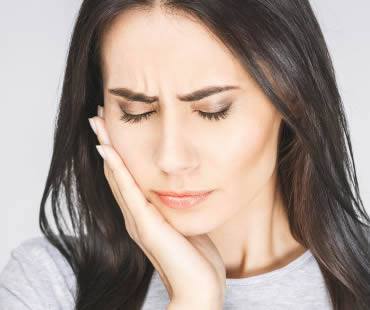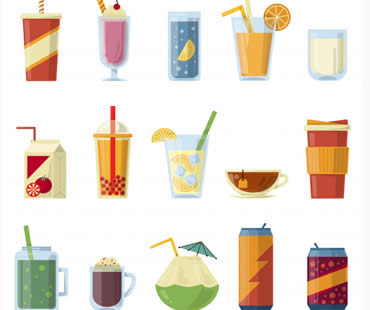
Blog, Dental Information, Dental Topics 3
When your tooth pulp that is located in the center of each of your teeth becomes damaged or infected, the best way to save the tooth is to have root canal therapy. This safe and effective treatment is not as painful as its reputation, and should not be avoided. Watching for signs that your tooth pulp has been compromised is an important step in saving your tooth, so that treatment may be performed before your condition becomes too advanced.
There are not always signs associated with a tooth that requires root canal therapy. Sometimes only examination, X-rays, and other tests will reveal problems. This is one reason regular dental visits are important. In other cases, symptoms are present to indicate pulp damage. Some typical signs include:
- Pain that is often related to inflamed tooth pulp, which can be caused by deep decay, chipped or cracked teeth, repeated dental procedures, faulty crowns, infection, tooth grinding, or periodontitis. Inflammation increases pressure inside the pulp cavity and triggers the tooth’s nerves. The pain may be in the tooth itself, or it can be referred to other areas in your mouth. Pain when eating or sensitivity to hot or cold is also common.
- Gum swelling near the damaged tooth
- Facial swelling
- Tooth loosening
- Pus around the damaged tooth
- Tooth discoloration, which usually occurs over a longer period of time. Discoloration can take weeks, months, or years to appear. This is another reason for regular dental checkups.
If you experience any of the symptoms above, or if your dentist identifies problems upon examination, it’s time to consider root canal therapy. Saving your natural tooth is almost always better than having to replace a lost tooth. Root canal therapy can help you keep your smile intact, as well as its function. Your natural sensations of a real tooth remain, as well as normal biting abilities. Don’t shy away from treatment; take care of tooth pulp problems when they arise.
If you need a dentist in Gaithersburg contact us today
Blog, Dental Information, Dental Topics 2
In many households, the bedtime routine is no fun. One of the trickiest parts for some parents is getting their kids to brush their teeth. However, it’s not a part of your child’s routine that should be skipped. To help make taking care of their teeth fun for children, here are some ideas for parents.
Toothbrushes:
Provide your kids with fun toothbrushes! By choosing a brush decorated with their favorite character or color, your children will think of their toothbrush more like a toy than a dental tool. Consider getting more than one toothbrush, so each night they can choose the one they want to “play” with at the time.
Toothpaste:
Children are picky about their toothpaste flavors just like their foods. Select toothpaste that you know your kids will like. Some of the flavor options include bubble gum and fruits, as well as the standby mint.
Floss:
If they start flossing at a young age, your kids will likely view it as part of their oral hygiene routine all of their life. Try using some of the fun flossing tools on the market today, because they may help get your child interested in flossing. There are many colors and shapes to choose from, so keep trying until you find one that motivates your child.
Rewards:
Enticing your children with rewards is often an easy way to encourage them to perform a task without arguing. Consider making a rewards chart and giving them a sticker each time they brush and floss. By the end of a week filled with good dental hygiene, a special reward will await them!
We treat patients from Gaithersburg and the surrounding area
Blog, Dental Information, Dental Topics 2
Reaching for a sports drink may seem like a smart way to rehydrate during a big game or after completing your exercise regimen, but you may not be as educated as you think. Consumption of sports drinks is on the rise, with 62 percent of American teenagers drinking at least one a day. That’s why it’s important to inform consumers that these drinks which are touted to help your body can also take a toll on your health, at least on your oral health. Let’s find out exactly how sports drinks can negatively impact your teeth.
What makes sports drinks harmful?
You might guess that sugar is what makes these drinks less appealing. It’s true that you should avoid the brands heavy in sugar, but that’s actually not your teeth’s biggest enemy in sports drinks. It’s the high acid content that presents the most danger. Researchers have found that sports drinks have so much acid that they can start damaging your teeth after just five days of regular consumption.
Aren’t they better than drinking soda?
Most people choose these drinks thinking they will enhance their sports performance, and that they’re a better option than soda. Sports drinks are not that different than soda because they contain as much or more sugar. It’s simply not true that sports drinks are healthier for your teeth than soda.
What kind of damage can they do?
The acid in sports drinks can cause irreversible damage to your teeth. They erode your enamel, which is the shiny outer layer of your teeth, causing them to become sensitive to temperature changes and to touch. It also increases your risk of decay and cavities.
How can I avoid harming my teeth?
If you just can’t give up sports drinks, at least try to minimize the amount you consume. Rinse your mouth with water afterwards, but don’t brush your teeth immediately because it might spread the acid around your mouth. Wait about an hour for the pH level in your mouth to normalize, and then brush. You can also chew sugarless gum after having a sports drink, which increases your saliva flow and helps to return your mouth’s acidity levels back to normal.
If you live in the Gaithersburg area contact us today
Blog, Dental Information, Dental Topics 2
Problems with your mouth or teeth can occur suddenly. You might be injured playing a sport, eating, or even just while doing a seemingly harmless activity. You should know what types of dental problems are considered emergencies, and what to do while waiting to see your dentist. Quick action can make a big difference in saving a tooth, or limiting damage to your mouth or face.
What is considered an emergency?
Not every dental problem must be treated as an emergency, but some do require professional treatment as soon as possible. This includes a broken or knocked out tooth, lost crowns and fillings, severe toothache, infection, and injuries to the soft tissues of your mouth.
What should I do?
See your dentist as soon as possible to treat the problem and prevent further damage. Here are some steps to take if you experience any of the following common dental emergencies:
- Severe toothache – rinse your mouth with warm water and floss to remove trapped food.
- Swelling – apply a cold compress on the outside of the swollen area. Do not place any painkiller or aspirin against your gums, because it can burn your gum tissue.
- Chipped or broken tooth – if possible, save the piece that has broken off. Rinse both the piece and your mouth with warm water. If it is bleeding, hold gauze on the area. Apply a cold compress to relieve pain and reduce swelling.
- Lost filling – apply dental cement from your drugstore to fill the hollow area until you can see your dentist. Or, try placing a bit of sugarless gum into the area.
- Lost crown –try to replace the crown on your tooth and hold it in place temporarily with dental cement, denture adhesive, or toothpaste.
- Abscess – infections in your mouth can become abscessed, which is a serious condition. Rinse with warm salt water and see your dentist immediately.
- Soft tissue injuries – treat damage to your gums, cheeks, tongue and lips by rinsing with warm salty water. Hold gauze to the specific area to control bleeding, and hold a cold pack to the external area.
Schedule your appointment at our Gaithersburg dental office

Blog, Dental Information, Dental Topics 3
Everyone wants to attain a brilliant, white smile. Modern dentistry can help you achieve this goal with Invisalign teeth whitening or cosmetic enhancements such as veneers or porcelain crowns. Brushing and flossing will help you keep your smile in prime condition. Your diet can impact your teeth as well. Certain foods and beverages can darken your teeth, including:
• Tea Time
Considered a healthy beverage, tea may not keep your teeth white. In fact, black tea can leave more stains than coffee.
• Saucy Saucy
Yummy extras like soy sauce, tomato sauce, and curry sauce may taste delicious, but they have significant potential in the stain department. Choose lighter cream sauces or brush right away to limit issues.
• Sports Power
Highly acidic beverages, like sports or energy drinks, erode tooth enamel and make teeth more susceptible to stains. Try water when you exercise as a safer choice for your smile.
• A Little Wine
If a drink will stain your linens, it can also alter the appearance of your pearly whites, so limiting your intake of wine can protect your smile.
• Berry Good
Though blackberries, cherries, and blueberries are great for your body, the deeply pigmented molecules in these fruits can stick to enamel and cause discoloration. Pies and juices containing these foods can also stain teeth.
• Bubbling Over
Frequently a cause of stains, sodas and other carbonated drinks have acid and chromogens, which can lead to serious stains. Even lighter colored drinks have enough acid to allow staining from other foods and beverages.
Our dental office is located in Gaithersburg

Blog, Dental Information, Dental Topics 4
Why Snacking Right Matters for Your Teeth
Oral health is essential not just for maintaining a beautiful smile but also for overall health. Diet plays a significant role in promoting healthy teeth and gums.
From the time we are children, we are taught about brushing and flossing our teeth to keep them healthy. While these habits help keep our teeth clean and free from food debris, the food we eat has a much bigger impact on our oral health than we realize.
The Role of Diet in Promoting Healthy Teeth and Gums
What you eat affects more than just your waistline; it can have a significant impact on the health of your teeth and gums. A balanced diet that includes nutrients such as calcium, vitamin D, phosphorus, and fluoride helps build strong teeth that resist decay.
Foods that are high in sugar or acidic content can erode tooth enamel over time if consumed frequently. Acidic foods gradually break down tooth enamel leading to cavities or sensitivity issues.
Good oral hygiene practices combined with healthy eating habits are necessary for maintaining optimal oral health throughout life. In the next section, we will discuss snacks to avoid when it comes to maintaining good oral health.
Snacks to Avoid
While snacking provides a quick and easy way to satisfy hunger pangs, not all snacks are created equal. Some snacks can harm your teeth by promoting the growth of harmful bacteria or eroding tooth enamel. Here are some types of snacks you should avoid:
Sugary and Acidic Snacks That Can Erode Tooth Enamel
Sugary and acidic foods and drinks can cause significant damage to your teeth over time if consumed in excess. When you eat sugary foods, the bacteria in your mouth convert the sugar into acid, which erodes the hard outer layer of your tooth enamel. Acidic foods also contribute to enamel erosion by softening the protective layer that covers your teeth.
To minimize damage from sugary and acidic snacks, it’s best to consume them in moderation or avoid them altogether. Common examples of sugary and acidic snacks include candy, soda, sports drinks, fruit juice, pickles, tomatoes, citrus fruits such as oranges and lemons.
Sticky Snacks That Can Get Stuck In Between Teeth
Another type of snack that can be harmful to your teeth is sticky food. Sticky food has a tendency to cling onto tooth surfaces for extended periods, promoting bacterial growth that causes decay over time.
Candy bars with caramel or nougat centers are common culprits for getting stuck between teeth. Similarly dried fruits like raisins can get stuck between teeth making it challenging for saliva to wash away food particles from these areas creating a breeding ground for bacteria.
To minimize harm from sticky snacks try opting for crunchy alternatives like apples or carrots instead of candies or dried fruits. Avoiding these types of snack will go a long way toward maintaining healthy oral hygiene as well as reducing the risk of cavities and tooth decay.
Great snacks for your teeth
A healthy diet plays a significant role in maintaining good oral health. Choosing the right snacks not only helps to keep your body healthy, but also promotes healthy teeth and gums. Here are some great snack options that can improve your oral health.
Crunchy fruits and vegetables
Crunchy fruits and vegetables such as apples, carrots, celery, and cucumbers are great choices for snacking. These foods are high in fiber which helps to scrub away plaque from teeth while stimulating saliva production. Saliva neutralizes harmful acids produced by bacteria in the mouth that can cause tooth decay.
Apples are particularly beneficial because they contain malic acid which aids in cleaning teeth and removing surface stains. Carrots have abrasive qualities that help to remove plaque from teeth while celery is rich in vitamins A and C that promote gum health.
Dairy products
Dairy products like cheese, yogurt, and milk are known to be rich sources of calcium which is essential for building strong bones including teeth. They also contain casein which helps to prevent tooth decay by neutralizing acid produced by oral bacteria.
Cheese is especially beneficial since it contains phosphate which helps to balance the pH level of the mouth preventing dental erosion. Yogurt contains probiotics which fight against bad bacteria that can cause gum disease.
Nuts and seeds
Nuts such as almonds, cashews, and seeds like sunflower or pumpkin seeds provide an excellent source of protein with low sugar content making them ideal for snacking. They also contain essential minerals like phosphorus, magnesium that help strengthen tooth enamel. Almonds have abrasive texture that provides a scrubbing action on teeth surfaces removing plaque buildup while cashews stimulate saliva production aiding in washing away food particles trapped between teeth surfaces.
Sugar-free gum
Sugar-free chewing gum has been shown to help prevent tooth decay by increasing saliva flow which neutralizes acid in the mouth and washes away food particles that can contribute to plaque buildup. Look for gum with xylitol, a natural sweetener that has been proven to have positive oral health benefits. Chewing sugar-free gum after meals also helps to freshen breath, making it a great option if you don’t have immediate access to a toothbrush.
Incorporating these healthy snacks into your diet not only promotes better oral health but also provides many other benefits for your overall well-being. Remember, choosing whole foods over processed snacks is always the best choice for maintaining optimal health.
Tips for Snacking Smartly
Snacking is an essential part of our daily routine, but it can have a detrimental effect on our teeth if we don’t choose the right snacks. Here are some tips to help you make smart snacking choices that promote good oral health.
Limit Snacking Frequency to Reduce Exposure to Acids and Sugars
Frequent snacking throughout the day exposes your teeth to acids and sugars, which can lead to tooth decay and other oral health problems. Instead of snacking all day long, try limiting your snacking frequency and opt for healthier snacks like fruits, vegetables, or nuts.
Rinse Mouth with Water After Snacking if Brushing Is Not Possible
If brushing is not possible after you snack, rinsing your mouth with water can help wash away food particles and neutralize any acid produced by bacteria in your mouth. This helps reduce the risk of tooth decay and gum disease.
Choose Whole Foods Over Processed Snacks
Processed snacks often contain high amounts of sugar and unhealthy fats that can harm your teeth and overall health. Instead of reaching for packaged snacks, choose whole foods like fresh fruits and vegetables or low-fat dairy products like cheese or yogurt. These types of foods are low in sugar, rich in nutrients like calcium that promote healthy teeth and gums.
By following these simple tips for smart snacking choices, you can maintain good oral health while still enjoying delicious snacks throughout the day. Remember always to consult a dentist if you have any oral concerns or questions about dietary habits that may affect your dental hygiene regimen.
Choosing healthy snacks for healthier teeth
Choosing healthy snacks is essential for maintaining excellent oral health. Snacks high in sugar, acid, and stickiness promote tooth decay and gum disease. On the other hand, snacks rich in fiber, calcium, protein, and water content strengthen the tooth enamel and promote saliva production.
Limiting snacking frequency
It’s essential to limit snacking frequency to reduce exposure to acids and sugars that cause dental problems. Frequent snacking creates an acid attack on the teeth by reducing saliva production. The less time it takes between meals and snacks increases the likelihood of developing cavities.
Rinsing mouth with water after snacking
When brushing your teeth is not possible after a snack or meal, rinsing your mouth with water can help remove food particles from the mouth. This action also helps neutralize acidic content in the mouth before brushing later.
Choosing whole foods over processed snacks
Choosing whole foods over processed snacks is beneficial for good oral health. Processed foods contain high levels of sugar which can be harmful to your dental hygiene in many ways.
A diet that includes healthy snack options like fruits, nuts, vegetables as well as dairy products such as cheese and yogurt will provide you with all the necessary nutrients required for good oral health. Practicing proper oral hygiene measures like brushing twice daily with fluoride toothpaste along with a balanced diet can help keep your teeth strong and healthy.
Our dental office is located in Gaithersburg



